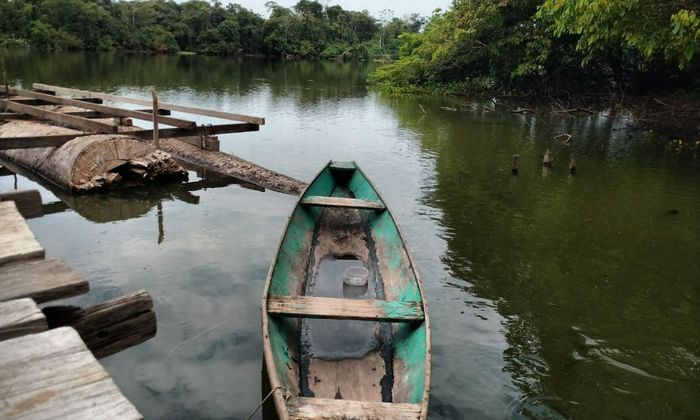5 Famous Fishing Myths You Should Know About
Learn some of the most famous fishing myths by reading this article.

Fishing is an age-old tradition and sport, so it's not surprising that there are so many fishing myths. Perhaps it’s because anglers spend so much time sitting or standing around waiting for fish to bite while surrounded by mystical vistas — they can’t help letting their imaginations run wild and free! But most likely, it’s simply the human tendency to provide explanations for unpredictable or inexplicable things, especially back in the day when fishing was less guided by scientific data.

Many fishing myths have stood the test of time — for better or worse. In this article, we’ll run down 5 of the most famous fishing myths you should know about — and we’ll find out whether there’s any truth to them or if they’re just anglers’ tales that have taken hold of the collective imagination.
1. Fish Have Short-Term Memory
This is a myth that remains popular to this day, even though it has been debunked again and again. Studies have shown that fish do not have 5- or 30-second memories, especially those that live in the wild. That’s because surviving in the wild requires fish to remember where they can get their food.

However, anglers don’t need to refer to such studies to debunk this myth. Just fishing in a popular water body should clarify fish’s ability to retain memory. They will not bite on a fly that’s most commonly used on the spot, no matter how well you ‘match the hatch.’
2. The Moon Can Affect Your Fishing
This one sounds mystical, but there is plenty of truth in it. During a full moon, when nights are brighter, fish will feed like they normally do in the daytime, so they’re less inclined to eat (and be lured by your bait) during the day. On the other hand, fish will be more ravenous during a new moon during the day and therefore be more active and susceptible to your cast.
So how can you leverage your knowledge of the moon phases when fishing? Expert anglers attest to fishing a few days before and a few days after a full moon, especially if you’re targeting trophies such as blue marlin and sailfish. Fishing at night during full moons can be quite astounding for king mackerel. Catching swordfish, however, will depend on which side of the coast you’re on. Fishing for them during the new moon will be productive if you’re fishing in the eastern Pacific side. But if you’re in the Atlantic area, full moon nights are your best bet.
3. Colorful Lures Get the Most Bite
This fishing myth needs to be debunked because it does not present the whole picture. Your lure selection shouldn’t only be dependent on color. Instead, you should also consider the water quality, weather conditions, and the depth you plan to fish. Otherwise, the color of your lure — no matter how bright and colorful — will not attract any catch.
4. Catch-and-Release Does More Harm than Good
Catch and release is a crucial practice that helps keep fish populations healthy while still supporting a thriving recreational fishing industry, so this is partly a myth. That’s because, if not done right, it does more harm than good. Catch and release isn’t simply about releasing a fish back into the water after it gets hooked. It requires proper handling, utmost care, perfect timing, and the use of the right hook (circle hooks are highly recommended as they don’t destroy the gills). You don’t want to just set a fish back into the wild after catching it — you want to ensure it’s in tiptop condition so it will continue to survive and thrive.
5. Big Fish Require Big Flies and Big Bait
While big fish can indeed take on a big bait and big flies, such lure sizes are not necessarily required to land them. The most important thing to remember when targeting trophies? Your presentation, or where you position your lure in the water current.

Bonus! Bananas are Bad Luck on Boats
We may laugh at this fishing myth and chalk it up to superstition — but do imagine yourself as an angler in the 1700s and learning that many unlucky boat journeys involved bananas on board. Looking at it from a rational standpoint, there were probably other reasons why bananas used to cause so much trouble for boat anglers back in the day. Some plausible explanations include bananas carrying vermin that infested the boats, boat crews getting sick after eating rotten bananas, and boat passengers getting injured slipping on banana peels. Nowadays, many anglers still think bananas are bad luck on boats and will ban anything banana-related to be sure because it can’t hurt, right? So if you’re hopping on a fishing charter, don’t be surprised if your captain asks you not to bring anything remotely related to bananas on board.



